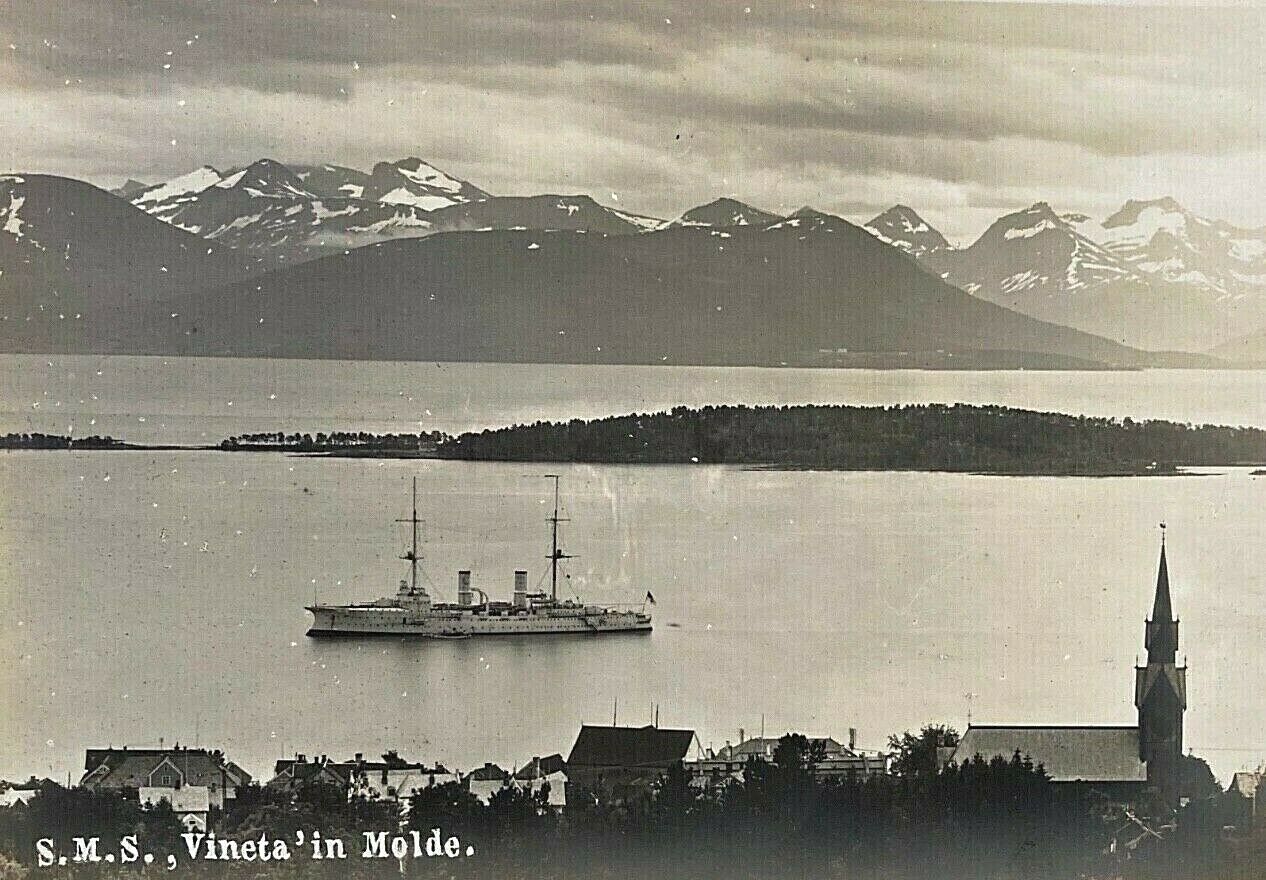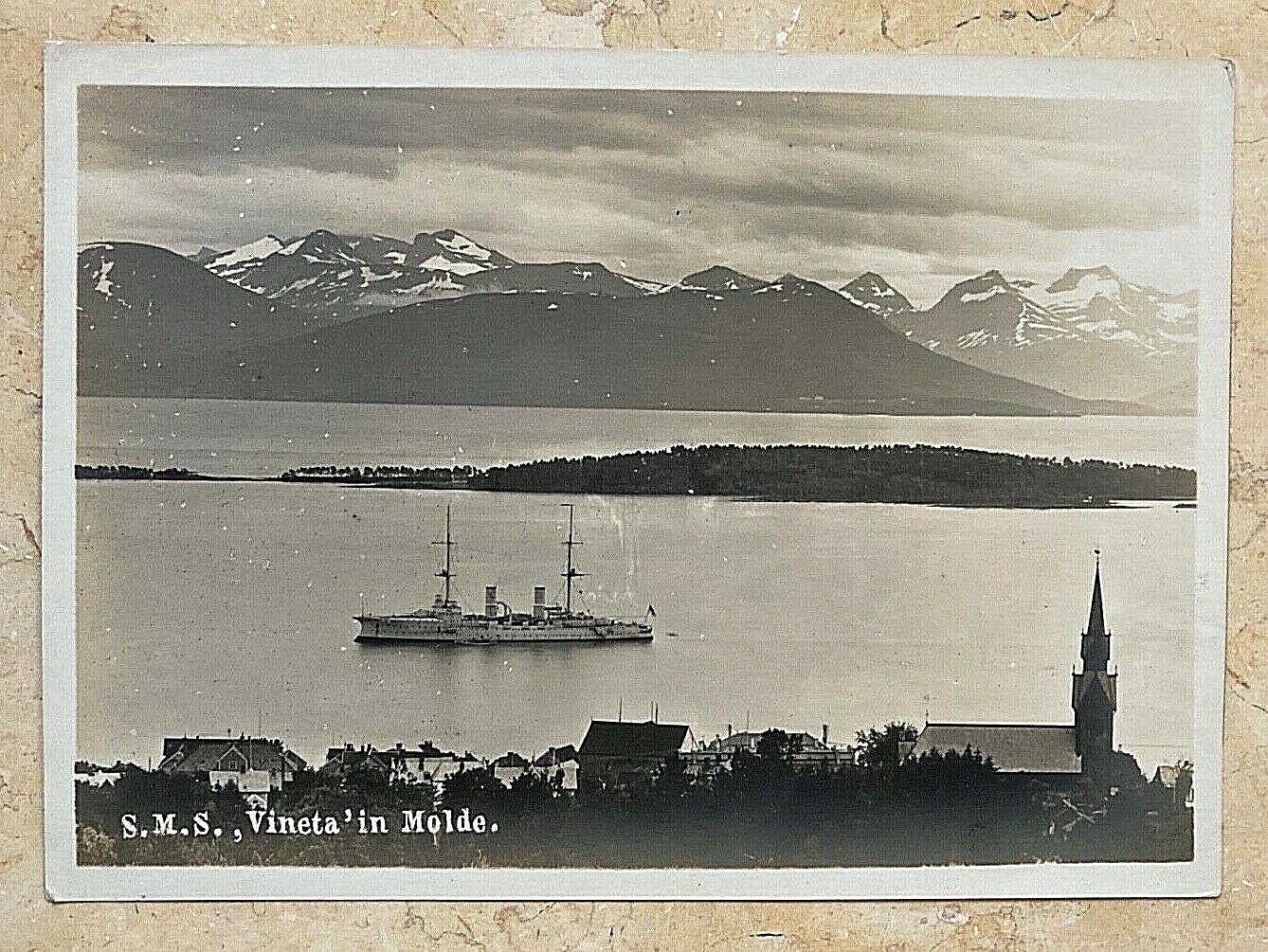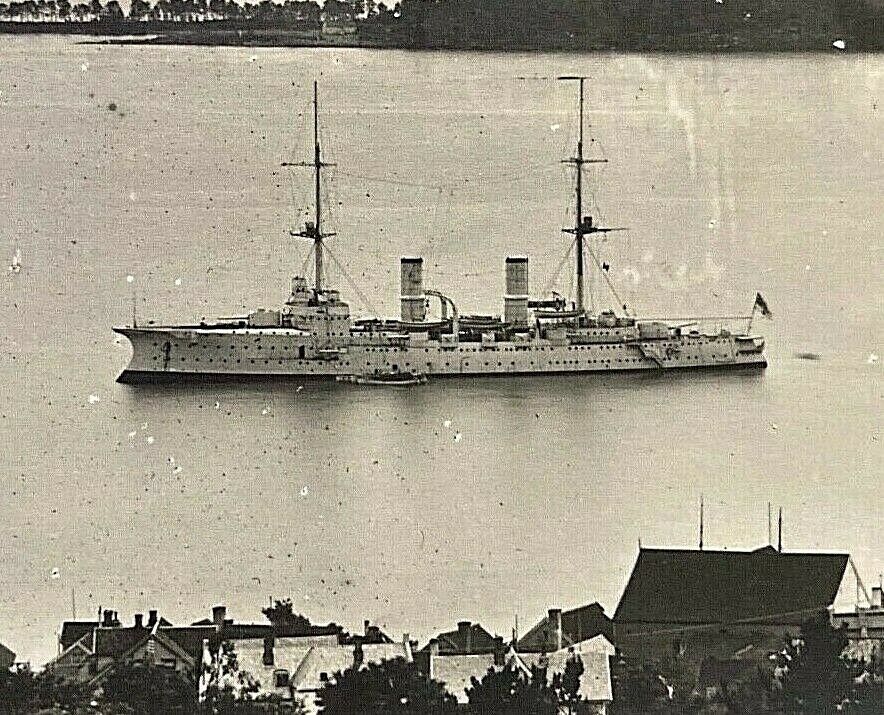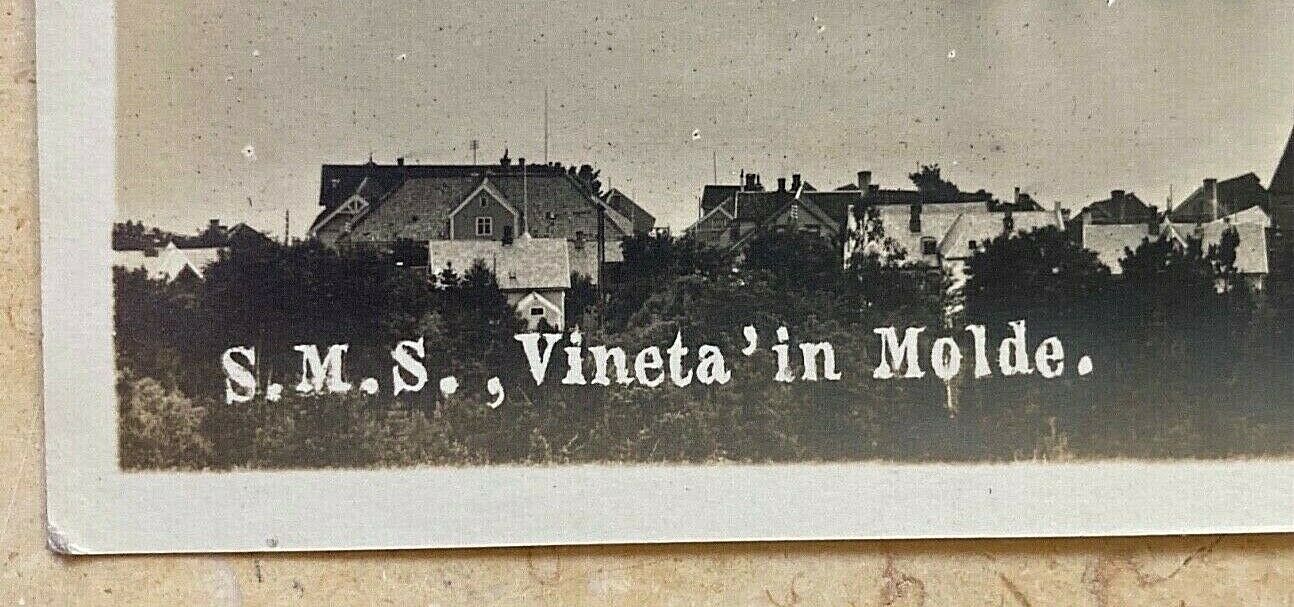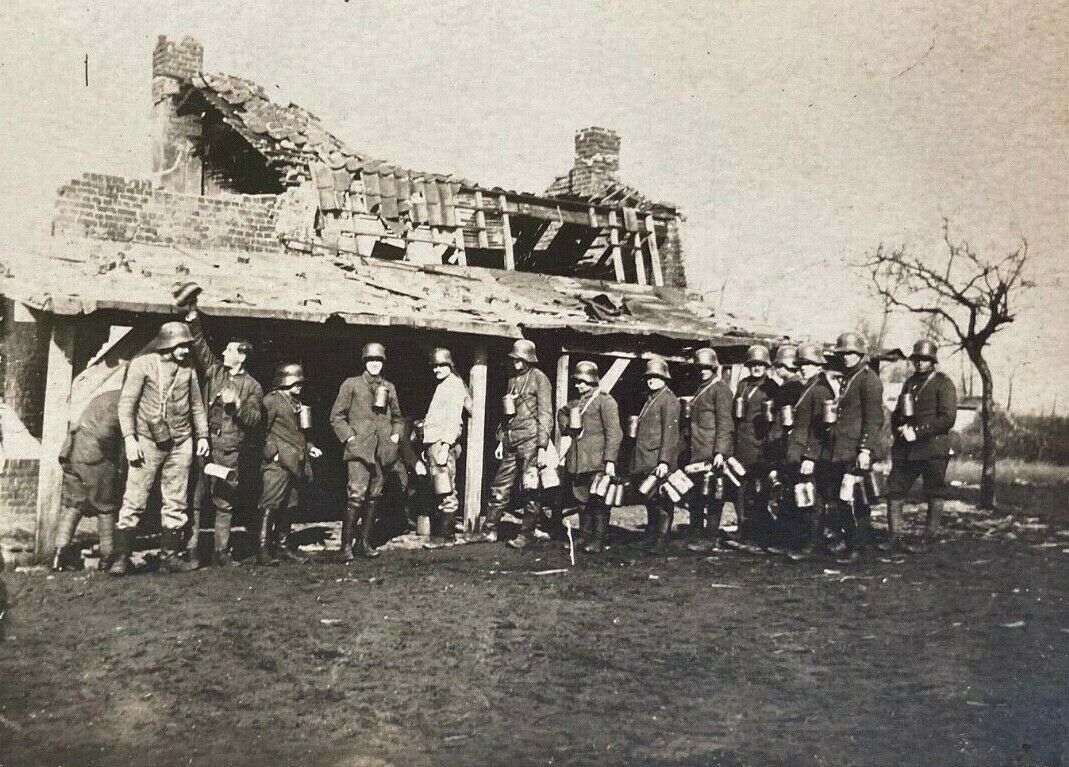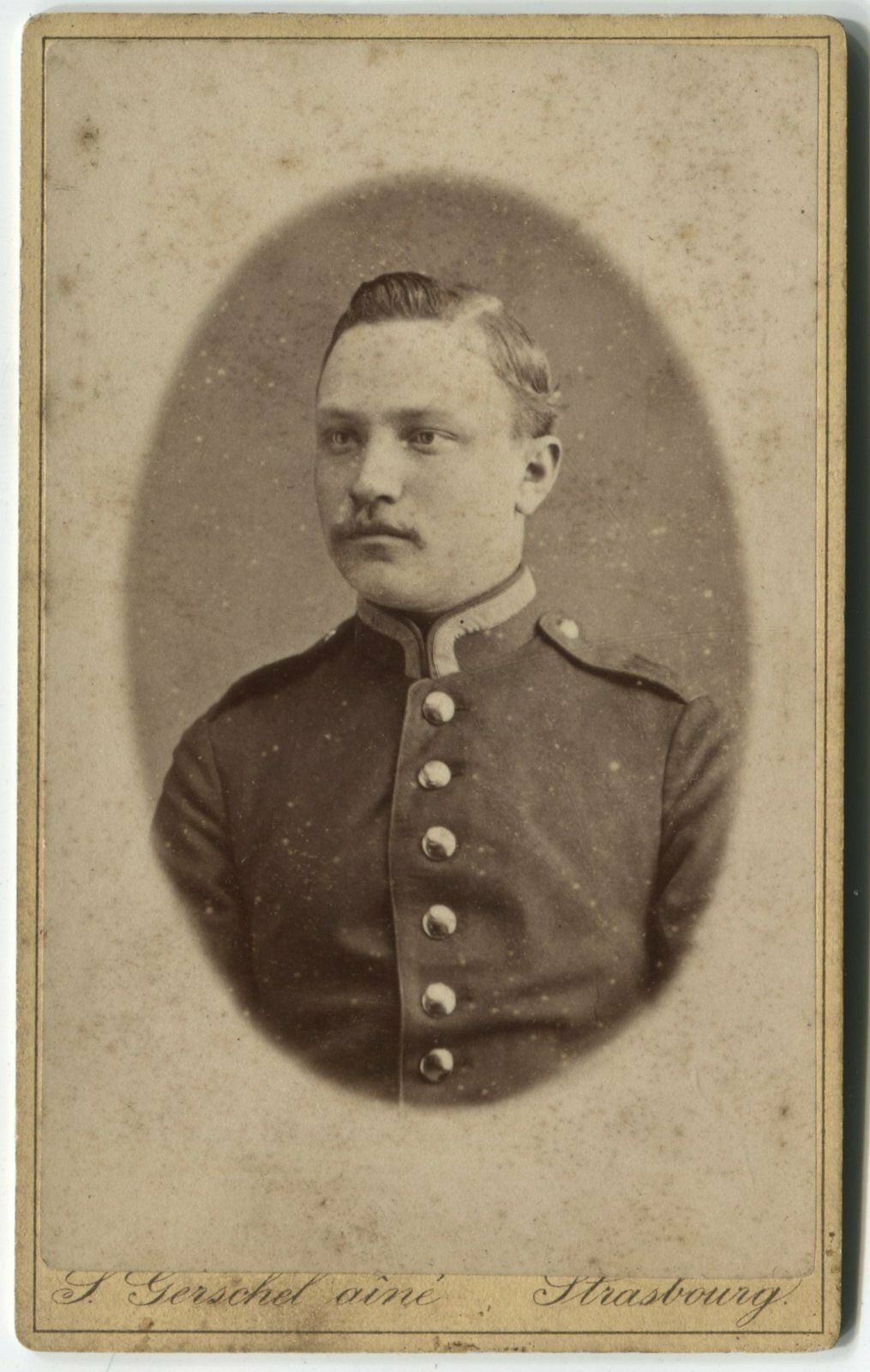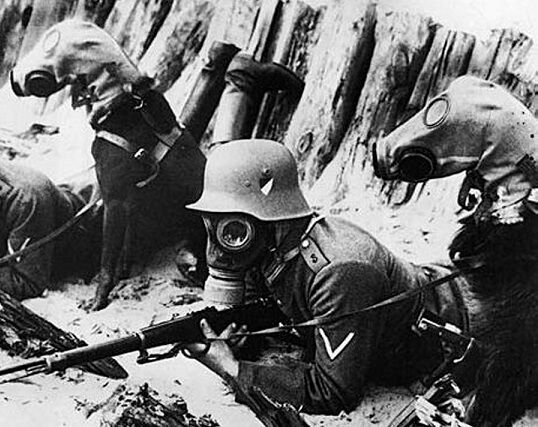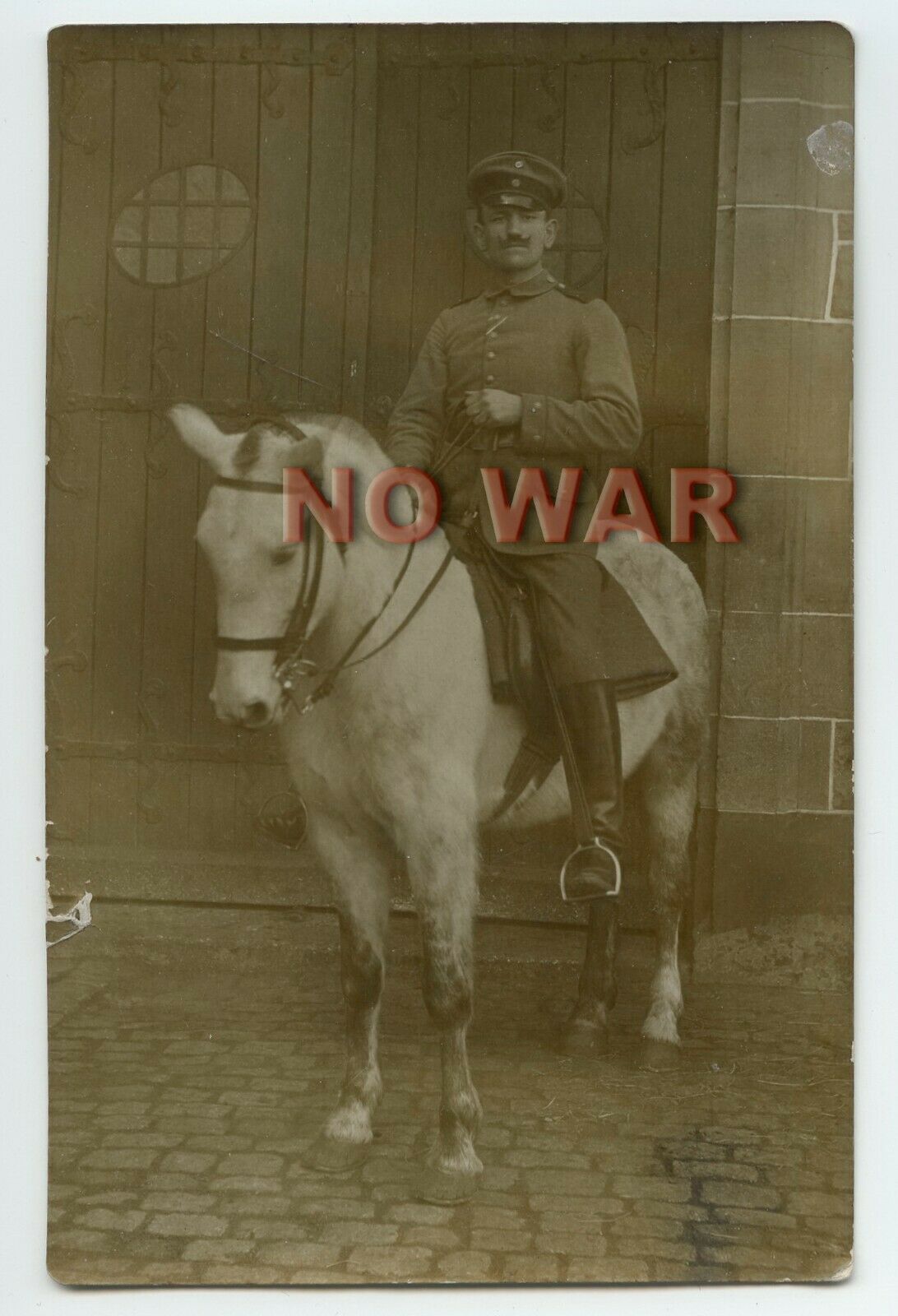-40%
ORIGINAL - WW1 GERMAN HIGH SEAS FLEET SHIP " SMS VINETA " IN MOLDE NORWAY c1914
$ 16.36
- Description
- Size Guide
Description
ORIGINAL - WW1 GERMAN HIGH SEAS FLEET SHIP ** " SMS VINETA" IN MOLDE NORWAY c1914ORIGINAL LARGE SEPIA PHOTOGRAPH OF THE GERMAN NAVY ARMOURED CRUISER ** " SMS VINETA " PART OF THE SCOUTING GROUP V AS PART OF THE * HIGH SEAS FLEET.
THE GERMAN NAVY ARMOURED CRUISER ** " SMS VINETA " ANCHORED NEAR THE CENTER OF THE FANNEFJORD AND MOLDEFJORD NEAR THE ROMSDAL
PENINSULA IN
NORWAY c1914 WITH FULL SKIFFS NEAR ITS HULL READYING FOR SHORE.
RARELY SEEN LARGE PHOTO OF THE SMS VINETA IN MOLDE NORWAY c1914
CONDITION IS VERY FINE THROUGHOUT WITH SOME VERY LIGHT HANDLING.
IDENTIFIED IN THE NEGATIVE IN THE LOWER LEFT CORNER:
**
S.M.S. ,VINETA' IN MOLDE.
SHARP FOCUS WITH VERY GOOD CONTRAST ON POSTCARD WEIGHT PHOTO PAPER.
LOTS OF INTERESTING DETAILS CAN BE SEEN THROUGHOUT.
OUTER PHOTOGRAPH DIMENSIONS: 5 1/16" x 7"
USED.
(please see pictures)
THIS IS NOT A COPY OR A REPRODUCTION IN ANY WAY.
PLEASE SEE MY 100% POSITIVE FEEDBACK AND BUY WITH CONFIDENCE
*
The High Seas Fleet
1907–1918
was the battle fleet of 100 ships of the German Imperial Navy and saw action during the First World War. The formation was created in February 1907, when the Home Fleet was renamed as the High Seas Fleet.
** SMS Vineta armoured cruiser of the Victoria Luise class. Built by laid down in 1896 launched 14th April 1897 and completed 13th September 1899. The Victoria Luise class Cruisers were intended for Colonial Service where she served until 1905. In 1908 she became an experimental vessel and went into refit and re-boilered during 1909 - 1911 at Danzig Dockyard becoming two funneled instead of three. After 1911 SMS Vineta became a cadet training ship. During the outbreak of war she was mobilized into the 5th Scouting group and used for coastal defense in the Baltic this only lasted until the end of 1914 when she was again de commissioned and used as an accommodation ship in 1915. Disarmed in 1916 finally stricken on the 6th December 1919 and scrapped 1920 at Harburg.
Displacement: 5,800 tons to 6,389 tons. Speed: 18.5 knots, Coal Fired Compliment; 477 Armament: Two 210mm (8.2 inch) guns Eight 150mm (5.9 inch guns) Ten 88mm (3.4 inch ) Ten machine guns and Three 450mm (18 inch) Torpedo Tubes (1 bow and Two Stern) all submerged
